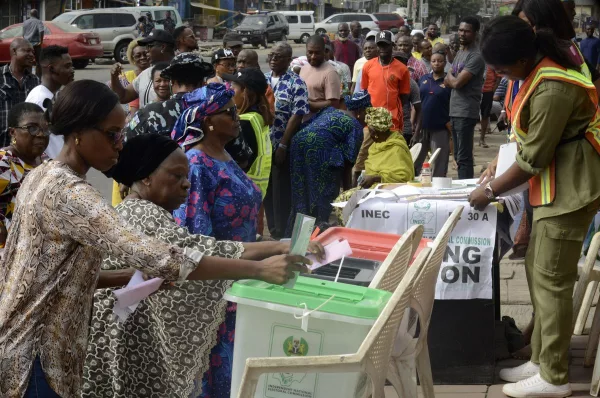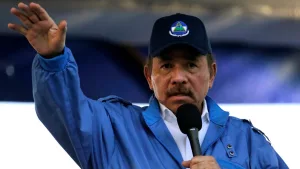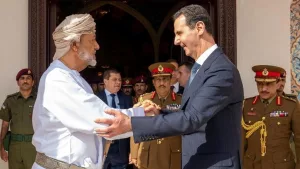On Saturday, February 26, Nigerians took to the polls to elect their new leader in the Nigerian presidential elections, in what Al Jazeera called the beginning of a “democratic renaissance.” The West-African country has been cursed with political corruption and economic turmoil since the fall of its military regime in 1999. This year, however, a presidential candidate from an underdog party had emerged, and young voters were hopeful about the election’s result. Nevertheless, the elections’ flawed management led to an unexpected result, claims of fraud, and the country’s worst voter turnout in history.
For decades, the All Progressives Congress (APC) and the People’s Democratic Party (PDP) alternated leading the country. Both sides were involved in corruption scandals and are blamed for the country’s large socioeconomic problems. This election changed, however, when Peter Obi of the Labour Party arose to challenge the two-party system. It is the first time this party managed to rival the APC and PDP, making these Nigeria’s most competitive elections in decades. Obi earned the most votes in Lagos state, Nigeria’s “commercial hub” and previous APC stronghold as explained by Reuters.
Obi’s unexpected rise in popularity comes from various different sources. Bola Tinubu of the APC is 70 years old, Atiku Abubakar of the PDP is 76 years old and Peter Obi is merely 62 years old. The former candidates are traditional and have earned power by leveraging religious and ethnic divides in the country. Obi, however, is a reformist. He has addressed citizens of all religions and ethnicities, encourages challenging questions at press conferences and speaks directly to the public. He is also said to be the first candidate to have made money before politics, rather than from politics. His name appeared in the Pandora papers, however, a list of offshore company owners, which he called an error in declaring ownership of his company. Still, he comments on this candidly when asked and offered bank statements to prove his money’s origin.

Yet Nigeria’s next president faces a difficult task. The country is plagued by four vast safety issues– terrorists in the Northeast, armed gangs in the Northwest, violent separatists in the Southeast and ransom kidnappings countrywide. From December 2020 to July 2021, 1,000 school children were kidnapped for ransom in Nigeria’s north alone. Furthermore, inflation reached 21% in December, and a recent attempt to replace all existing banknotes created a nationwide cash shortage. The country also faces deep-rooted corruption. From police and armed forces, to the government, to the huge petroleum industry, virtually all sectors are affected. This, in turn, is why Obi became so popular- he offers a refreshing perspective for young and urban voters tired of corruption.
Citizens went to the polls on Saturday, February 25, but the election’s result was released on March 1. The country’s Independent National Electoral Commission (INEC) explained that this holdup was due to technical issues in the system, and apologized for the distress. Despite this, the INEC is still being heavily criticized for the delays and accused of vote manipulation. An organization of civil society groups called Yiaga Africa explained that they “can no longer accept [the INEC’s] excuses.” They assure that if there is corruption in the counts, “[Yiaga Africa] will be able to expose it.”
On March 1, Bola Tinubu was announced as the winner of the presidential elections. Since the country requires only a relative majority vote for the presidency, Tinubu won with around 37% of the votes. What many hoped would be a huge change in Africa’s largest democracy, turned out to be a deeply mishandled election. Violence broke out in polling stations, both the Labour Party and PDP claimed that the votes were rigged, and perhaps most importantly, INEC’s delays stripped millions of Nigerians of the ability to vote. The election turnout was its lowest ever at 29%, despite the 10 million new registered voters set to participate this year. This also contradicts what Nigerian citizens had been saying for days before, explaining that they had never seen so many voters take to the polls.
Citizens thought this election could be a pivotal change for the West African nation, but in reality, it turned out to be a source of outrage from every region of the country. Now, Obi and Abubakar will have to decide whether to take their claims of voter fraud to the country’s judiciary. One thing about the election is clear, however; Nigeria’s new president has a challenging road ahead.
Cover image by: Patrick Meinhardt / CNN






